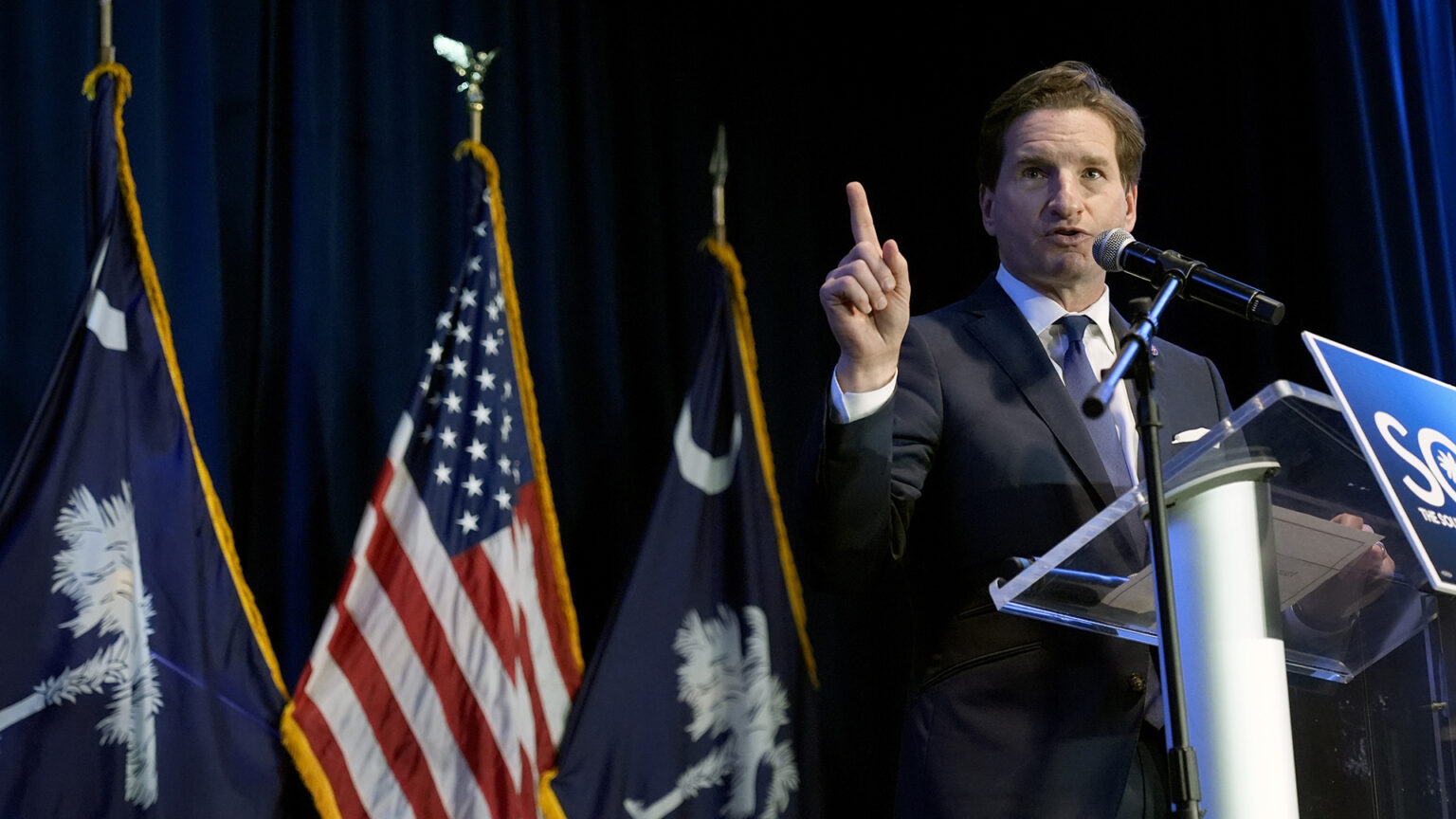Democratic Biden challenger Dean Phillips asks Wisconsin Supreme Court to put him on primary ballot
Democratic presidential candidate U.S. Rep. Dean Phillips wants the Wisconsin Supreme Court to order that he be added to the April 2024 primary ballot in the battleground state.
Associated Press
January 29, 2024

Democratic presidential candidate Rep. Dean Phillips, D-Minn., speaks at South Carolina's "First in the Nation" dinner on Jan. 27, 2024, at the South Carolina State Fairgrounds in Columbia, S.C. (Credit: AP Photo / Jacquelyn Martin)

MADISON, Wis. (AP) — Democratic presidential candidate U.S. Rep. Dean Phillips wants the Wisconsin Supreme Court to order that he be put on the primary ballot in the battleground state after he was excluded by the state’s top Democrats who only put President Joe Biden’s name on the ballot.
Phillips asked the state’s highest court to take his case on Jan. 26. On Jan. 29, the Wisconsin Supreme Court gave the committee that put forward Biden’s name as the only Democratic candidate, as well as the state elections commission, until Jan. 31 to respond. Former President Donald Trump and five of his challengers, including four who have ceased campaigning, will also be on the Wisconsin ballot.
Phillips, who represents neighboring Minnesota in Congress, is running a longshot bid to defeat Biden. He is the only Democrat in elected office who is challenging Biden.
Phillips is looking for swift action in Wisconsin, asking the state Supreme Court to rule in the case by Feb. 9 in order to avoid any conflicts with deadlines for distributing absentee ballots ahead of the April 2 primary.
Phillips argues that his request to be put on the ballot was illegally ignored by the Wisconsin Presidential Preference Selection Committee, which is comprised of Republican and Democratic leaders who bring forward names for the ballot, and the Wisconsin Election Commission.
Phillips argued that he met the test in Wisconsin law for gaining ballot access that says a candidate must be “generally advocated or recognized in the national news media.”
According to the lawsuit, a top Phillips adviser contacted the chairman of the Wisconsin Democratic Party on Dec. 2 to request that they talk about ballot access. Four days later, the Phillips adviser received a call from the state Democratic Party’s executive director who acknowledged the request to be put on the ballot, but gave no indication that Phillips would be, the lawsuit argues.
A spokesperson for the Wisconsin Democratic Party declined to comment.
Phillips argues that if his name is not on the Wisconsin ballot, he will have to “waste resources to circulate petitions and gather signatures” in order to get on the ballot through an alternative process.
Phillips is asking the court to order the elections commission to add him to the list of certified candidates on the primary ballot.
The Wisconsin Elections Commission traditionally just accepts the recommendations from party leaders that come forward through the presidential selection committee. The commission’s spokesperson Riley Vetterkind had no comment on the lawsuit.
“As we fight Trump’s attacks on democracy we must also be vigilant against efforts by people in our own Party to do the same,” Phillips said in a Jan. 29 statement. “Voters should choose the nominee of our Party without insiders trying to rig the process for Joe Biden.”
Biden easily won the New Hampshire primary on Jan. 23 as a write-in candidate, with Phillips getting about 20% of the vote. Phillips has been certified to appear on the primary ballot in other states.
The Wisconsin Supreme Court must first decide whether to accept the case, and if it does, then issue a ruling. It gave non-parties wishing to submit arguments the same Wednesday deadline as the elections commission and presidential selection committee to respond.
 Passport
Passport











Follow Us